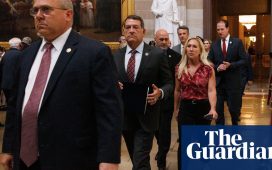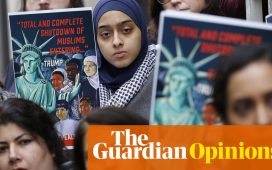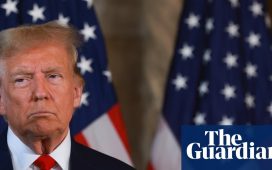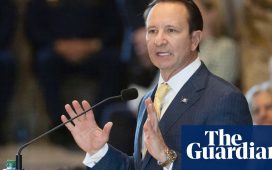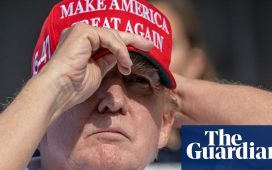More than 800,000 non-citizens and “Dreamers” could vote in New York City municipal elections as early as next year, after Mayor Eric Adams allowed legislation to become law on Sunday.
Opponents have vowed to challenge the law, which the city council approved a month ago. Unless a judge halts its implementation, New York is the first major US city to grant widespread municipal voting rights to non-citizens.
More than a dozen communities across the US allow non-citizens to vote in local elections, including 11 towns in Maryland and two in Vermont. Non-citizens cannot vote for president or Congress, or in state elections.
The New York board of elections must begin an implementation plan by July, including registration rules and provisions to create separate ballots for municipal races.
It’s a watershed moment for the most populous US city, where legally documented non-citizens comprise nearly one in nine of 7 million voting-age inhabitants. The movement to win voting rights for non-citizens prevailed after numerous setbacks.
The measure would allow non-citizens who have been lawful permanent residents of the city for at least 30 days, as well as those authorized to work in the US, including Dreamers, to help select the mayor, council members, borough presidents, comptroller and public advocate.
Dreamers are young migrants brought to the US illegally as children who would benefit from the never-passed Dream Act, or the Deferred Action for Childhood Arrivals program, which allows them to remain in the US if they meet certain criteria.
The first elections in which non-citizens would be allowed to vote are in 2023.
“We build a stronger democracy when we include the voices of immigrants,” said former council member Ydanis Rodriguez, who led the charge for the legislation.
Rodriguez, who Adams appointed transportation commissioner, thanked the mayor for his support and expects a vigorous defense against any legal challenges.
Adams raised concern about the month-long residency standard, but later said those concerns did not mean he would veto the bill. While there was some question whether Adams could stop the bill, a 30-day time limit to take action expired at the stroke of midnight.
Speaking to CNN’s State of the Union on Sunday, Adams said: “I did not change my mind. I supported the concept of the bill. The one aspect of that I had a problem with and I thought was problematic was the 30-day part.
“… I’m a big believer in conversation, we have to start talking to each other and not at each other. And after hearing [colleagues’] rationale and their theories behind it, I thought it was more important to not veto the bill.”
Adams added: “In New York City, 47% of Brooklyn speak a language other than English at home. And so I think it’s imperative that people who are in a local municipality have the right to decide who’s going to govern them, and I support the overall concept of that bill.”
Former mayor Bill de Blasio had similar concerns to Adams but did not move to veto the measure before vacating City Hall at the end of the year.
Opponents say the council lacks the authority on its own to grant voting rights to noncitizens and should have first sought action by state lawmakers.
Some states, including Alabama, Arizona, Colorado and Florida, have adopted rules that would preempt any attempts to pass laws like the one in New York City.
Asked what he would say to people who say the bill “makes a mockery of the idea of American citizenship”, Adams told CNN: “You know, membership has its privileges.
“Being a member of what we call United States of America is a great privilege and I would tell them to keep doing it … don’t let anything take you away from that mission. This legislation is not going to do that. Keep becoming a citizen of this country.”

